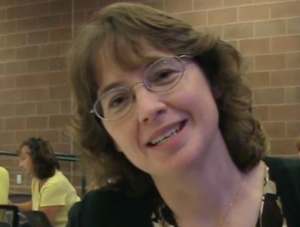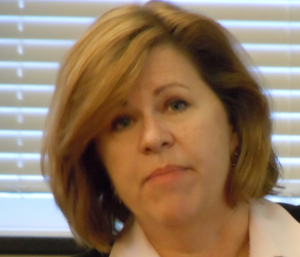URI professors advance literacy for a digital age
KINGSTON, R.I. - July 25, 2015 -Two University of Rhode Island professors are on a mission. They're working to help every student in the United States develop the new digital and media literacy skills they need to be prepared for the knowledge economy and the many technology-intensive jobs where excellent communication skills are essential.
During the week of July 27 - July 31, 2015 more than 150 K-12 and college teachers, librarians, media professionals, youth media advocates and researchers will gather in Providence on the URI-CCE campus for the third annual Summer Institute on Digital Literacy, one of the nation's premier professional development programs for educators. The program, sponsored by URI's School of Education and URI Providence Special Programs, is designed to help educators advance students' literacy and learning by using digital texts, tools and technologies together with innovative instructional strategies that motivate and engage students' critical thinking, creativity, collaboration and communication skills.
Howard Rheinhold, lecturer at Stanford University and author of the 2012 book, NetSmart: How to Thive Online, is the keynote speaker for the 2015 Summer Institute in Digital Literacy. Rheingold predicted the collaborative evolution of the Internet as an early and active member of groundbreaking web communities and now works to advance digital literacy in the context of social and participatory media.
"We're expanding the concept of literacy to address the world that our students are living in now," said Renee Hobbs, professor and director of the Media Education Lab at URI. She and her colleague Julie Coiro, an associate professor of education and a leading expert on online reading comprehension, are co-directing the Summer Institute. They have launched the Graduate Certificate Program in Digital Literacy, the first in the nation to provide advanced training in digital literacy for educators, librarians and media professionals. This program include participation in two summer institutes and two fully-online graduate courses over a 12-month period.
"Today, students need to be able to find, gather, use and share information using the Internet and they need to analyze and evaluate the messages they encounter," said Julie Coiro, who is one of the nation's leading literacy researchers with a special expertise in online reading comprehension and the integration of technology in education. "Students need to access, comprehend and synthesize information and ideas that use language, images, sound and multimedia. Students need to learn to create and compose using media tools. We're preparing teachers who can advance students' ‘reading' and ‘writing' skills in all the many forms that they now encounter-through tweets, YouTube videos, blogs and much more," she said.  According to Renee Hobbs, digital literacy is growing in importance because educators, government leaders and members of the business community are recognizing the relevance of these skills to future citizens and workers. At the first annual summer institute in 2013, more than 70% of participants rated the Summer Institute the "best ever" professional development program in their entire career. Participants enrolled in the Summer Institute from 15 U.S. states and around the world, including educators from Italy, Japan and Israel.
According to Renee Hobbs, digital literacy is growing in importance because educators, government leaders and members of the business community are recognizing the relevance of these skills to future citizens and workers. At the first annual summer institute in 2013, more than 70% of participants rated the Summer Institute the "best ever" professional development program in their entire career. Participants enrolled in the Summer Institute from 15 U.S. states and around the world, including educators from Italy, Japan and Israel.
But the Summer Institute in Digital Literacy is definitely not just another educational technology conference, notes Coiro. Instead, the program examines both the opportunities and the challenges of living and working with new digital media tools, and their utility in the context of K-12 and higher education. "There's real momentum for digital literacy within the education community and in other education-related sectors, including higher education," Hobbs said. In 2012, she served as the Digital Literacy Fellow for the American Library Association and her white paper, Digital and Media Literacy: A Plan of Action was published by the Aspen Institute and sponsored by the Knight Foundation Commission on the Information Needs of Citizens in a Democracy. Hobbs recently created Mind Over Media, a user-generated content website with curriculum materials for helping high school and colleg students to explore the many new forms of contemporary propaganda that require critical analysis and a questioning, skeptical mind.
"Teachers will finish the week-long program inspired with a clear vision of how to activate students' skills as authors and audiences, ready for full participation in society," said Coiro. By learning for themselves how digital tools promote critical analysis, creativity and self-expression, teachers advance in their own careers as reflective practitioners and professionals. "The diverse knowledge community that comes together for the Summer Institute enables us to engage -- as researchers, learners and teachers - in preparing students for the world outside the classroom," said Hobbs.
Workshop faculty for the program at the 2015 Summer Institute in Digital Literacy include Professors Hobbs and Coiro along with national experts Kristin Hokanson, a Discovery STAR educator and ISTE regional leader; Charles Coiro, from the Leadership Development Center at the United States Coast Guard Academy; Jonathan Friesem, Assistant Director of the Media Education Lab, Mary Moen, librarian at Chariho RI High School, Rhode Island; David Quinn, University of Rhode Island, Kara Clayton, media teacher at Thurston High School in Redford, Michigan; Professor Jill Castek of Portland State University; and Diana McMasters, Interdistrict School for the Arts and Sciences, CT
The program is sold out for 2015. Registration for the 2016 Summer Institute in Digital Literacy opens March 1, 2016.